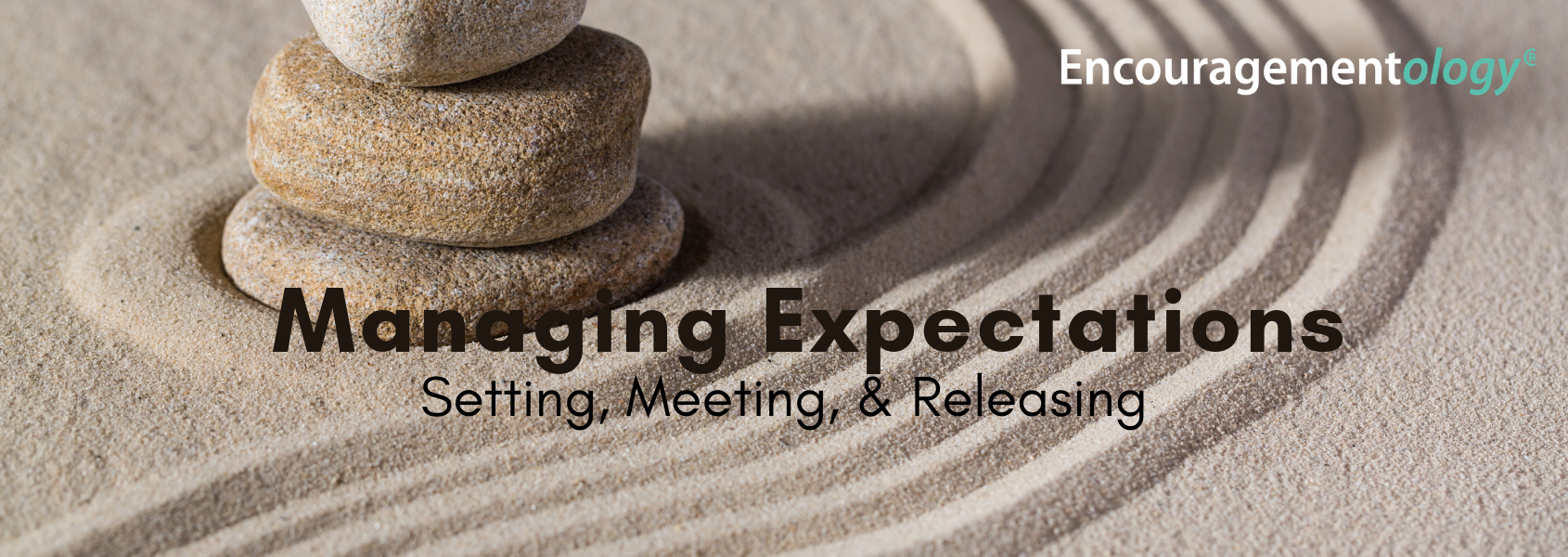Expectation: a strong belief that something will happen. a belief that someone will or should achieve something. You or otherwise.
That definition tells us that this concept is attached to the outcome of getting something. This means that if you do not get the outcome it can lead to disappointment, hurt, blame and a feeling of powerlessness. We are going to talk about how to avoid those feelings by goal setting, acceptance, and letting go.
How many times have you said..”I don’t have any expectations…whatever happens, happens”, “I’m going into this or that expecting nothing…” Is that real, or a mantra you are telling yourself because you’ve been let down by your own unrealistic expectations before?
Well, guess what, You are not alone, this is a human trait. Human beings have a natural tendency to pin their hopes for happiness on fulfilled expectations.
Having zero expectations is unrealistic so somewhere you have to find a balance. If you are comforted by a routine, then you have built-in expectations and things are a little more predictable. I wake up every weekday at 6:30PM unless the alarm on my phone malfunctions then I expect to be woken up at that time. I grab my watch, phone, robe and head to the kitchen to make coffee. Unless the power is off or I’m out of coffee, I expect to have a piping hot cup of coffee after my shower. Then I head to the bathroom to get ready. Unless the water has been turned off or the gas is not heating the temperature, I expect to have a steamy shower every morning. Daily routines come with expectations but what if we broaden our view and we start looking at our day, the people we come in contact with, the unexpected. What are your expectations?
Expectations however are only a want or need – without planning. An expectation has no weight or process around it. If we expect something, there is a sense that it should happen, only because we want it. It’s our goals that keep us rooted and provide the foundation to do or become what we want.
Expectation: desired outcome
Goal: planned route
If you have an expectation to win a race, or get a job promotion, or write a book, and it doesn’t happen, there is a disappointment. What was your plan? Was this an aimless attempt? However, if these expectations were based on goals, then you have justification to be disappointed and a reason to modify your approach. What part of your planning failed you? This is the value of creating SMART goals – specific, measurable, achievable, results-focused, and time-bound – which help to identify the goal, when and how to reach it, and how you will know if it’s been reached.
Specific
Measurable
Achievable
Results-focused
Time-bound
Setting realistic expectations actually helps us grow and become more flexible. It helps us savor life and embrace the messy moments, which often hold more meaning anyway. And if you’ve got kids, it saves them from suffering needlessly. Because sky-high expectations are the opposite of self-compassion.
Challenge: Evaluate your wants, are the expectations or something you are actively planning for. Look at your disappointments, where they want that weren’t met or goals that weren’t realized. Take a more active role in your outcomes by putting in the work to set a goal, create an action plan, and monitor your expectations…and make sure there your expectations and not something you are doing to satisfy someone else.
I know YOU can do it

